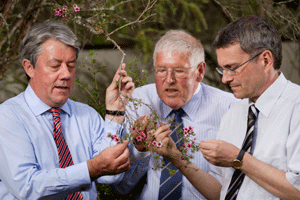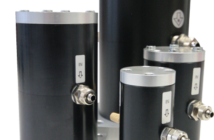By Les Watkins
German research has conclusively dispelled widely-held fears that manuka honey is a potentially dangerous food which could heighten the risk of diabetes.
The findings of world-renowned food chemist Professor Thomas Henle, who headed the team at the University of Dresden, give an extra boost to
New Zealand’s lucrative honey export trade.They are also a huge bonus for Manuka Health, a company with an annual turnover of nearly $20 million, which next month launches its latest products through its 45-country distribution network.
Anxieties about manuka honey stemmed from a misunderstanding over the compound methylglyoxal – commonly known as MGO – which is up to 800 times stronger in manuka than in other honeys.
“Initially those anxieties were mainly in America and were caused by the level of MGO, which also forms naturally in the body, and which goes up with diabetes,” Professor Henle told NZ FOODtechnology.
“This made people worry that the MGO in manuka honey could help promote the onset of diabetes – and so lead to other problems such as cataracts and kidney disease. Those worries found their way on to the internet so began to spread around the world.
“But our findings have shown unambiguously that the MGO in manuka honey is not absorbed into the body. When it reaches the small and large intestine it rapidly degrades into lactic acid and passes from the body. So it does not pose any risk.”
It has been established, however, that manuka honey – high in MGO – may be an effective cure for a bacterial infection of the stomach called helicobacter pylori. This is commonly known as h.pylori and is linked to the development of duodenal ulcers and stomach cancer.
Professor Henle, who is president of the German Society of Food Chemistry, said antibiotics often fail to treat h.pylori effectively.
However, manuka honey’s MGO may provide a cure and generally improve gastro-intestinal health.
The Manuka Health company, which recently extended its Waikato bee-keeping operation and factory at Te Awamutu, was established in 2006 after Professor Henle’s confirmation of the anti-bacterial benefits of the honey’s MGO.
It co-operates closely with the professor and is rapidly becoming recognised as an industry leader – this month receiving a NZ Trade and Enterprise national growth fund grant to help market its latest generation of products.
It already has about 80 functional food and dietary supplements and its plans include improved nasal sprays, creams and ointments.
Chief executive Kerry Paul reports that the company’s success has resulted in staff numbers swelling from about 25 to nearly 50 since April 2011.
“And, as for our turnover of nearly $20 million,” he says, “I’ll be disappointed if we don’t double that within four years.”





























































































